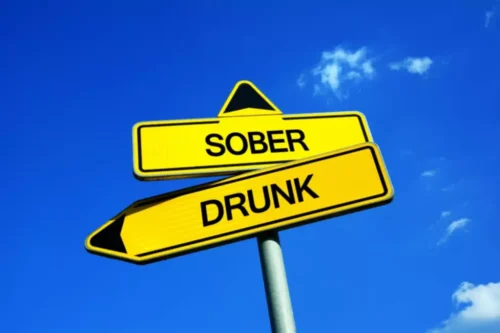
Contact The Providence Projects today to learn more about our residential rehab programme and start your journey towards recovery. Alcohol abuse can lead to a deficiency in thiamine (vitamin B1), essential for proper brain function. Thiamine deficiency can result in Wernicke-Korsakoff syndrome, a severe neurological disorder characterised by memory loss, confusion, and coordination problems. Alcohol and brain fog can vary but often include difficulties in concentration, memory, mental fatigue, and problems with decision-making. These symptoms impact your daily life, and can increase your risk of relapse. In this article, we’ll explore how alcohol impacts our cognitive health, including our memory, and some short actionable advice to help clear brain fog in early sobriety.

Can You Die from Alcohol Withdrawal?
- Try our free 3-minute quiz and get a personalized plan and free trial to see how it will work for you.
- Before we look at alcohol’s role in brain fog, let’s take a moment to define brain fog.
- Excessive alcohol consumption can have long-lasting effects on neurotransmitters in the brain, decreasing their effectiveness or even mimicking them.
- You may have breakthrough moments when you can suddenly think clearly, but then these are followed by moments of fuzzy thinking.
Some neuropsychologists (Heaton and Pendelton 1981) suggest the need for tests that are similar to daily activities. Brain fog, or mental fog, is often described as feeling mentally drained and unable to concentrate. Signs of brain fog include reduced cognitive functioning or difficulty with paying attention, keeping focus, multitasking, and memory recall.

Author: Find Recovery Editorial Team
Drinking heavily can also impair your cognition by affecting your diet and vitamin absorption. Some alcoholics become deficient in an enzyme that prevents them from metabolizing vitamin B1 (thiamine), or they simply don’t eat a nutrient-rich diet, causing malnutrition. The resulting alcohol brain fog deficiencies can lead to cognitive impairment and alcohol-related brain damage. Brain fog after drinking can be a pesky thing that affects you for days. It can also develop into a more severe alcohol brain fog, especially if you consume alcoholic drinks more often than usual.
Got Brain Fog? Here’s How Alcohol Affects Your Dopamine and Reward System.
But that’s not all — a 2021 study suggests it can also distract us from upsetting thoughts and a 2017 study notes that it can aid in emotional regulation after a stressful event. Instead of removing the “unhealthy” foods you regularly eat, start by making nutritious additions to your meals and snack times. A 2016 study suggested that stepping away from a task and taking a break can substantially improve your performance, focus, and degree of self-control. MacKinnon says that because there are so many different factors related to brain fog, there’s no one-size-fits-all way of treating it.
Sleep Your Way to Clarity: Natural Brain Fog Remedy
You might lose your train of thought in the middle of a conversation. It’s usually temporary, but the length of time you’ll experience brain fog can vary. Heavy drinking slows the cerebral cortex, which takes in and processes new information in your brain. Alcohol also dulls sensory uptake, so it might be difficult to take in new information. In a study published in 2018, people who regularly had 10 or more drinks per week had one to two years shorter life expectancies than those who had fewer than five drinks. That number increased to four or five years shorter for people who had 18 drinks or more per week.
“During perimenopause, these changes in mood are already challenging, and alcohol only amplifies them,” Chrisy cautions. Plus, we may not think to attribute our mood swings to perimenopause if they’re something we go through after a few glasses of wine. These effects can happen even after one drink — and increase with every drink you have, states Dr. Anand. People with a history of alcohol misuse may not be able to consume alcohol safely.

Knowing the cause of your symptoms can help determine if you need specific treatment or lifestyle and medication adjustments to help with brain fog. However, there are many ways to manage brain fog, including getting adequate sleep, nutrition, and social time; managing stress; and addressing any underlying contributing factors like ADHD or depression. The precise symptoms of alcohol-related brain damage depend on a person’s overall health, how much they drink, and how well their liver functions, among other factors. Excessive alcohol consumption can have long-lasting effects on neurotransmitters in the brain, decreasing their effectiveness or even mimicking them. Some people with a history of excessive alcohol use develop nutritional deficiencies that further damage brain function. Untreated alcohol misuse can lead to a number of severe health problems, including brain damage and cognitive impairment.


